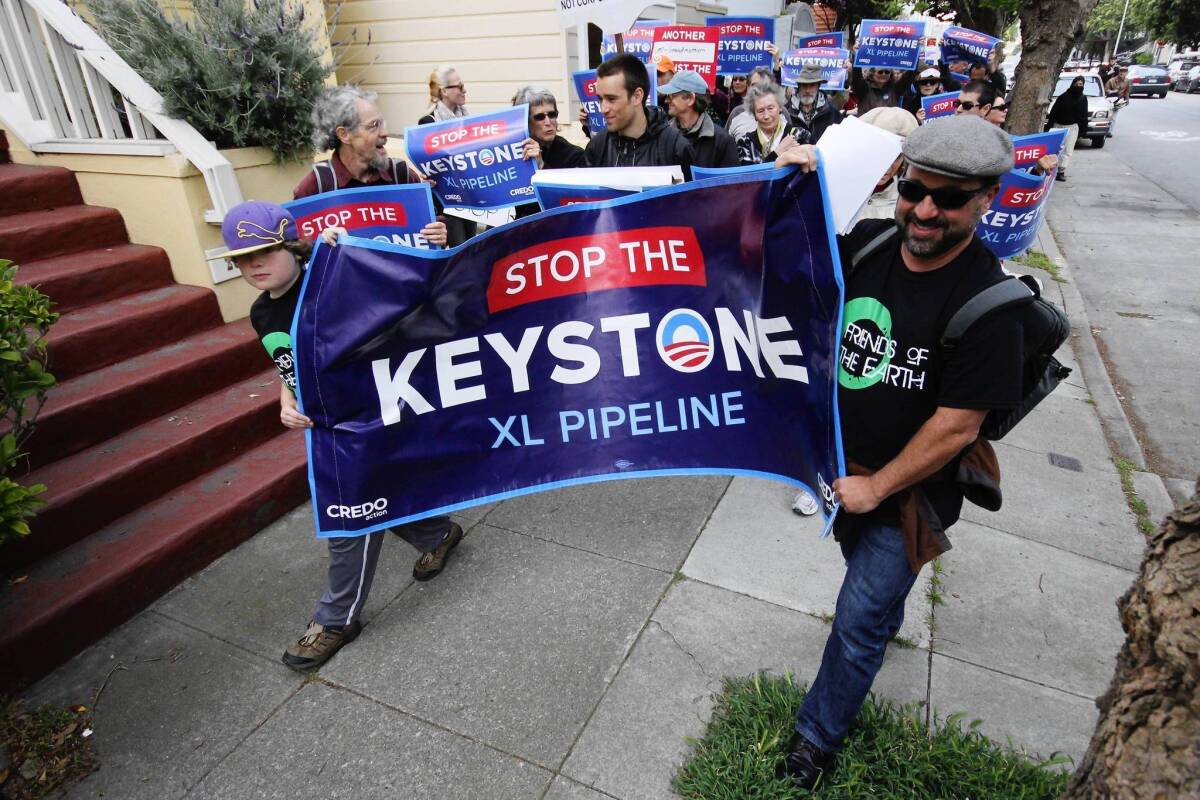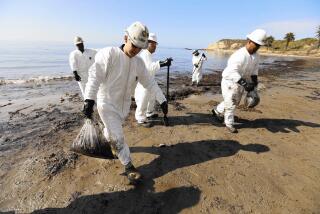Letters: Keystone XL’s purpose

- Share via
Re “A pipeline to disaster,” Opinion, April 4
Climate scientist James Hansen is right to push for reducing our carbon dioxide emissions to minimize global warming, but he has no sense of using the political art of compromise to achieve our goals.
As he admits, the oil from the Alberta tar sands in Canada will find its way to the market one way or another, where it will replace even dirtier coal. Not allowing the Keystone XL pipeline to be built to transport that oil through the U.S. to the Gulf of Mexico will simply force the use of more expensive and dirtier forms of transportation and would anger our best friends, the Canadians.
It would be far better to build the pipeline but charge a transit tax of $4 to $9 a barrel and dedicate that money to developing less expensive, sustainable energy sources. Alternative energy sources will be used when they become economically competitive.
Leroy Miller
West Hills
Hansen deserves a Nobel Prize, though I’m sure he would rather have responsible adults in Congress when it comes to climate policy. We are playing with fire when we ignore the plentiful warning signs given by nature. We irresponsibly create disastrous conditions not just for ourselves, but for many generations.
We must respond to prevent the planet from reaching tipping points, when any human efforts will be pointless and nature will say, “I’ll take it from here.”
And now we may grant the dirtiest oil on the planet permission to borrow America so a few profit. Again, we play with fire.
Jan Freed
Los Angeles
Hansen opposes the Keystone pipeline and favors “putting a price on carbon that makes fossil fuels pay their true cost.” I favor doing so too, provided we do not harm the needy.
Here’s where Hansen and I part company: He apparently opposes Keystone partly because of its economic promise. He cites oil transport costs of $7 to $11 a barrel by pipeline versus $15 to $20 by rail. I see this as a plus. Hansen says there’s a lot of oil in the Alberta tar sands, and that Keystone is “not only a bad marriage but a long one” since the pipeline would likely have a useful life of up to 50 years. Aren’t huge oil deposits and durable pipelines assets to all of us, dependent as we are on fossil fuels?
We engineers need time to bring economical non-fossil energy sources into wide use. We should not try to shorten this time by pushing up the cost of fossil fuels.
John L. Mason
Palos Verdes Estates
ALSO:
Letters: Revisiting Rev. Wright’s sermon
Letters: The right ‘Watchdog’ for insurers
Letters: Age difference and marriage legitimacy
More to Read
A cure for the common opinion
Get thought-provoking perspectives with our weekly newsletter.
You may occasionally receive promotional content from the Los Angeles Times.









